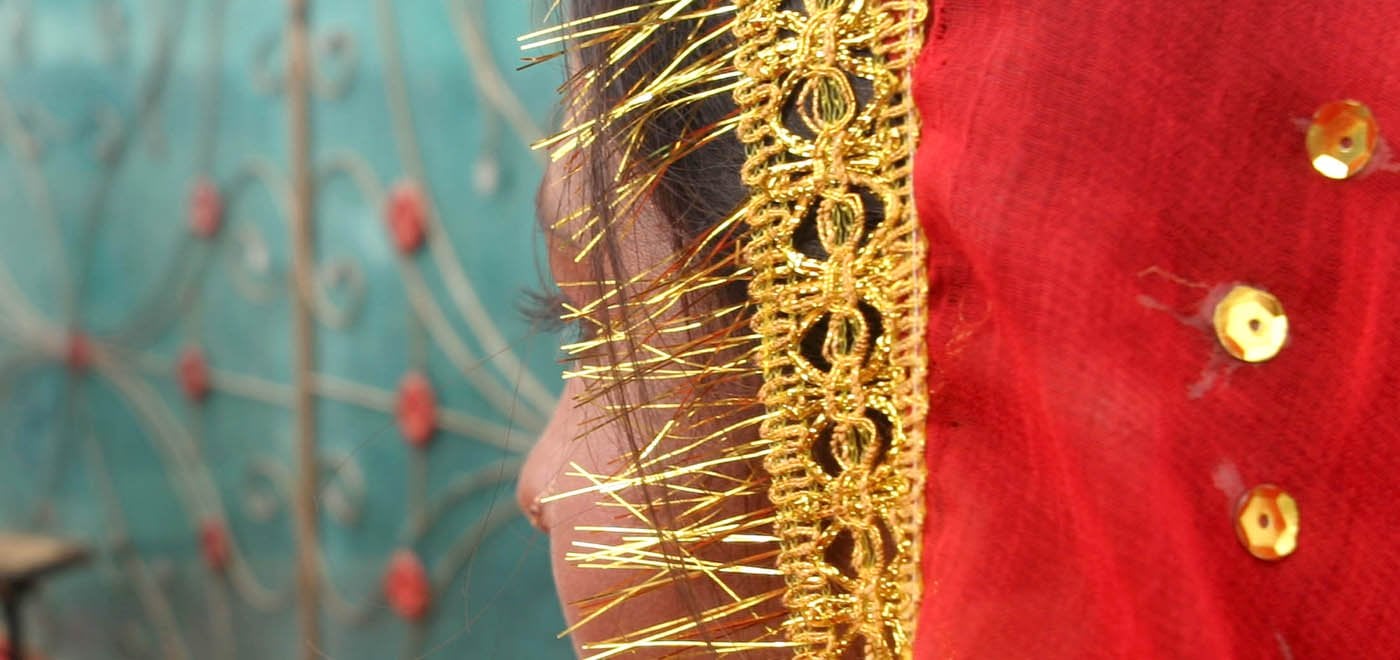
“I cannot believe Shazia killed herself,” says Sarah quietly, talking about the recent death of her live-in maid of seven years. “Seeing her hanging from the ceiling fan, her arms and feet black, is a sight I can never, ever forget.”
Two weeks ago, on a Friday that began just like any other, Sarah left home around 1 pm with her children to run some errands. Five hours later, she returned to find Shazia, aged 25, dead.
Shortly before her suicide, Shazia was about to be forced into an exchange marriage, known as watta satta, a swap of brides between two families.
“For the past few days, I would see her crying,” recalls Sarah. “And I would simply try to comfort her by telling her that her family had no right to do this, that she could say no to the marriage.”
According to Sarah’s account, Shazia was set up to marry an old man, whose daughter would, in turn, marry her mentally-challenged brother.
“I’m just a money-making machine for them, and now they want me married,” Shazia had said tearfully one evening. “It’s either this marriage or death.”
Like Shazia, many people each year are driven to their death by being forced into marriages. According to HRCP’s media monitoring, at least 1,976 people committed suicide last year, of which 629 were women.
“Shelter homes and non-government organisations can only do so much, they are reaching around 10% of the population,” says Anis Haroon, who recently relinquished charge of caretaker Sindh minister for human rights and women development. “The state needs to take responsibility.”
Haroon also believes that the state and the media need to work together, so that people in all regions can be made aware of their human and legal rights.
“You can’t always make laws against these kinds of practices,” she says. “We have to raise awareness and empower women.”
The right to choose
Shazia’s story is not the only one of its kind. The tradition of exchange marriages still thrives in the country.
Unfortunately, as in Shazia’s case, the element of compulsion is often present in such arrangements. While most forced marriages go unnoticed or unreported, Human Rights Commission of Pakistan (HRCP) reports indicate that in January 2012 alone, almost 340 such cases were recorded across Pakistan.
Child marriages, arranged by parents or the panchayats in villages, also add to the unreported category.
Why watta satta
“Often, parents are helpless and chose exchange marriage options for reasons such as poverty, insecurity, lack of awareness, and tradition,” says Haroon.
According to Mehnaz Rehman of Aurat Foundation, most cases of under-aged forced marriages are a result of greed. In a statement made in February, Rehman said that even after signing the Convention on Elimination of all forms of Discrimination Against Women (CEDAW), the government is not doing its part to form laws that adhere to global commitments.
And yet, despite the embedded practices, Haroon believes trends may be shifting.
“In urban areas the pattern has started changing,” says Haroon. “The rural families who have moved to the city have daughters who are earning. They now feel confident enough to refuse such proposals. Being financially strong empowers them.”
Published in The Express Tribune, June 14th, 2013.
COMMENTS (4)
Comments are moderated and generally will be posted if they are on-topic and not abusive.
For more information, please see our Comments FAQ



1716998435-0/Ryan-Reynolds-Hugh-Jackman-(3)1716998435-0-165x106.webp)






1730806490-0/New-Project-(2)1730806490-0-270x192.webp)




1730706072-0/Copy-of-Untitled-(2)1730706072-0-270x192.webp)
Another reason for Watta Satta is that its difficult for the poor and illiterate parents to find a suitable match for their daughters. So they readily accept the proposal which comes first from their "bradari."
First of all, this has nothing to do with Watta Satta.. this has to do with basic human rights and such an abuse could have taken place even if it was not a Watta Satta.
If the marriage takes place without the concent of bride or groom, it is illegal and unacceptable and that is what Islam also teaches.
Secondly, don't give it a feministic touch by calling Watta Satta "A bride for a bride".. as it can equally well be "a groom for a groom"..
I have seen very successful watta satta cases and many non-watta-satta marriages ending up in a mess...
These Watta Satta marriages should be prohibited. People who arrange such marriages probably lack proper education. We should educate people that such things are wrong. If a person who is properly aware of this still participates in such marriages, the person should be jailed. R.I.P Shazia. You didn't deserve this. No girl does.
Basically it also has its roots in land and inheritance of land ownerships. Similar to the matter of education, this problem can also be solved by carrying out Land Reforms.